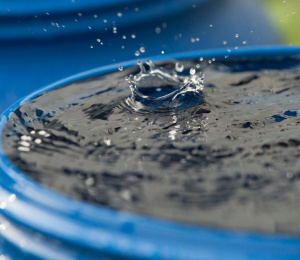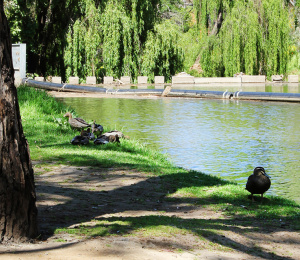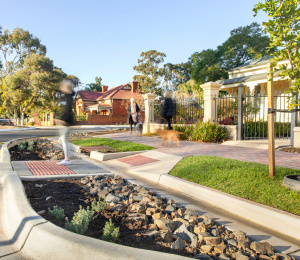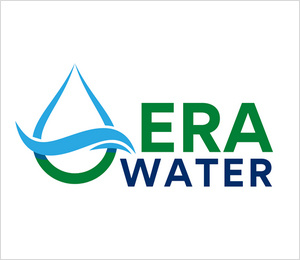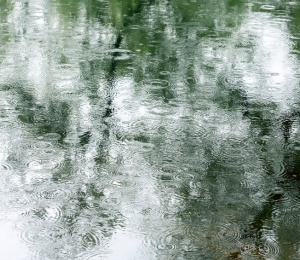Stormwater
Home > Our Environment > Water Management > Stormwater
The City of Norwood Payneham & St Peters is committed to reducing the detrimental impact stormwater pollution can have on our natural waterways.
 The City’s stormwater drainage network is one of many infrastructure assets which is provided and maintained by the Council for the community. The network removes surface water from roadways and provides appropriate levels of flood protection throughout the City.
The City’s stormwater drainage network is one of many infrastructure assets which is provided and maintained by the Council for the community. The network removes surface water from roadways and provides appropriate levels of flood protection throughout the City.
In 2019, the Council began a project that will see the City’s stormwater drainage infrastructure upgraded over a 15-year period. The upgrades will address and reduce the impacts of flooding and reduce stormwater water run-off, helping to protect residents, their homes and property, as well as the City’s assets such as footpaths, kerbing and street trees.
For information about stormwater drainage upgrade projects, visit: Major Projects
Related information
Stormwater and stormwater pollution
Stormwater is water which collects on areas such as footpaths, roads, gutters and other surfaces after heavy rain. As rain falls on and runs off mostly non-porous surfaces, it can accumulate pollutants, rubbish or fine matter on the surface, such as, oil, grease, heavy metals, nutrients, sediment, organic matter and litter. When stormwater is contaminated by these pollutants, our natural waterways also become polluted.
Stormwater pollution causes problems for our waterways, such as fish deaths, loss of native vegetation and algal blooms, all of which degrade the water quality in the waterway.
Most of the stormwater drains in the Council area flow to either First, Second or Third Creeks, which flow into the River Torrens, which then flows to Gulf St Vincent.
There is no treatment of stormwater entering our gutters; therefore only clean rain runoff is legally allowed to enter the stormwater system.
Under the Environment Protection (Water Quality) Policy 2015, every person, business, industry and government agency has an obligation to protect water quality and prevent stormwater pollution.
Pollutants not allowed in stormwater
- agricultural chemicals
- air conditioning or cooling system wastewater
- animal faeces
- asbestos
- bio solids and wastewater treatment sludge
- brick, bitumen or concrete cutting wastewater
- building wash water
- carpet or upholstery cleaning waste
- chemicals designed for human or animal therapeutic use
- chemicals listed in schedule a of the national strategy for the management of scheduled wastes 1992
- cleaning agents
- concrete waste
- condensate from compressors
- construction and demolition waste (whether or not inert)
- detergents and their by-products
- domestic waste (being waste produced in the course of a domestic activity)
- engine coolant
- fertilisers
- food or beverage waste
- fuel dispensing area wash water
- green waste (for example, lawn clippings, leaves and prunings)
- hard waste (for example, vehicles, tyres, batteries, metal parts, piping, electronic equipment and municipal solid waste)
- hazardous waste
- high pressure water blasting waste
- human waste
- liquid waste
- medical waste
- motor vehicle servicing or repairs waste
- oil, grease or lubricants
- paint and paint scrapings
- paint stripping waste
- painting wash water
- petroleum products
- photographic chemicals
- plaster, plaster waste and plaster wastewater
- pool backwash water
- pool chemicals
- putrescible waste (for example, food scraps and dead animals that are putrid or likely to become putrid)
- quarantine waste (waste that is subject to quarantine under the quarantine act 1908 of the commonwealth)
- radioactive waste (being waste, the management or disposal of which is regulated under the Radiation Protection and Control Act 1982 or a law of the commonwealth)
- roof cleaning waste
- rubbish and litter (for example, bottles, cans, cartons, cigarette butts, food scraps, packaging and paper, glass or plastic items or materials)
- sawdust
- sewage
- soil, clay, gravel or sand
- solvents
- stain or varnish
- steam cleaning waste
- street cleaning waste
- timber preservatives
- trade waste.
How you can help
Learn how to prevent stormwater pollution
A list of simple and easy ways to prevent stormwater pollution can be found on the EPA website, visit: EPA - Stormwater Management
Your legal obligations
For information about your legal obligations regarding stormwater pollution, visit: EPA - Legal Obligations
Report pollution incidents
The Eastern Health Authority (EHA) deals with stormwater pollution issues on behalf of the City of Norwood Payneham & St Peters. Contact the EHA by telephoning 08 8132 3600 to report an incident.
For serious or urgent reports, please contact the Environment Protection Authority (EPA) or telephone 08 8204 2000.
